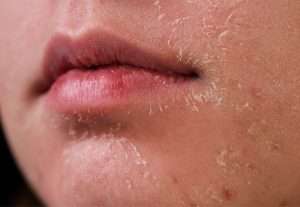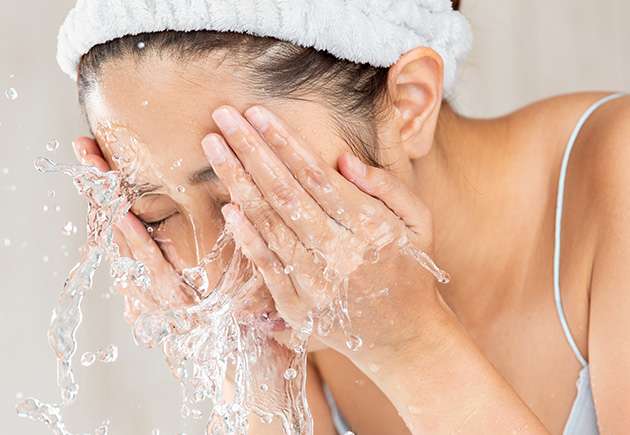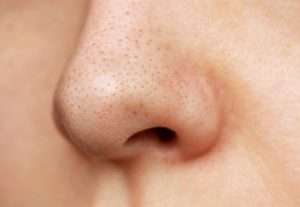Peeling Skin on Face: Top Common Causes and Solutions

Nobody enjoys looking in the mirror and seeing their skin peel. Sometimes, you can anticipate when it’s going to happen – like during extremely cold weather, when you start a new skin care routine or if your skin is excessively dry. These situations are often to blame for skin peeling. However, at other times, it seems to occur out of nowhere without any clear trigger. It’s worth noting that peeling skin on face is a normal process, although it may sound unpleasant.
Instead of immediately reaching for a heavy dose of moisturizer when you notice your skin flaking, it’s a good idea to figure out what’s causing the peeling skin on face. The most effective way to address it depends on the root cause. Sometimes, a simple lifestyle change can do the trick, while in other cases, you might be dealing with a more serious medical or dermatological issue that requires professional advice. In essence, there can be various reasons behind your skin shedding on face like a snake.
Here, we’ll explore some of the most common reasons for peeling skin on face and provide guidance on how to treat peeling skin on face to keep your skin smooth and flake-free.
Related Product – AHA, BHA & PHA Serum
Sunburn: The Leading Cause of Skin Peeling
Sunburn is by far the most common reason for skin peeling. When you expose your skin to the sun’s intense ultraviolet (UV) rays for extended periods without proper protection, such as sunscreen with a high SPF (Sun Protection Factor), it can result in peeling skin on face.
Here’s a more detailed explanation of how this process unfolds:
UV Radiation Exposure:
Sunburn is essentially a consequence of prolonged exposure to the sun’s UV radiation, particularly UVB rays. These rays can penetrate the outermost layer of your skin, causing significant damage to the DNA within your skin cells.
Cellular Damage:
UVB rays are particularly harmful as they directly affect the DNA within your skin cells. This triggers a chain reaction within your skin.
Inflammation:
In response to the cellular damage, your body initiates an inflammatory process. This manifests as the classic symptoms of sunburn: redness, swelling, and sometimes a burning or painful sensation on the sun-exposed skin.
Skin Peeling:
As part of the body’s natural healing process, the damaged skin cells are shed or peeled away. This face pilling is a vital mechanism to eliminate the damaged cells and make way for new, healthy ones.
Treatment for Sunburn:
When dealing with the discomfort of sunburn and the need to facilitate skin healing, it’s essential to follow certain steps. These include the application of cool, damp compresses to reduce inflammation, staying hydrated, and using topical creams to manage pain and inflammation. However, for enhanced sun-damaged skin recovery, you can incorporate skin peeling solution like Pomegranate 25% AHA+ 2% BHA+ 5%. This innovative formula not only cleanses your skin by gently buffing away debris and dirt but also reveals a radiant and balanced complexion. Additionally, this face serum benefits help diminish dark spots, acne scars, and imperfections while reducing the appearance of wrinkles and fine lines caused by sun exposure.
2 – Environmental Elements: A Common Culprit for Skin Peeling
Skin, your body’s largest and most visible organ, regularly encounters various environmental elements like heat, sun exposure, wind, rain, and dry conditions. These factors have the potential to harm and damage your skin, often leading to irritation, which, when repeated, can result in peeling skin on face.
Consider your skin as a protective shield between your body and the external world. When it faces extreme heat, intense sunlight, harsh winds, heavy rain, or excessively dry environments, it’s as if your skin is taking on a series of challenges.
This continuous exposure can irritate your skin, much like how a scraped knee becomes red and tender. With repeated irritation, your skin begins to shed, a natural process aimed at removing damaged skin cells and replacing them with healthier ones. In essence, peeling is your body’s way of maintaining the health and integrity of your skin amidst these environmental challenges.
To safeguard your skin under these conditions, it’s advisable to use moisturizers, apply AHA BHA peeling solution for face, apply sunscreen for sun protection, and wear appropriate clothing to shield yourself from harsh environmental factors. These measures can help reduce irritation and keep your skin both looking and feeling its best.
3 – Allergies: A Less Common Yet Significant Cause of Skin Peeling
Although not as frequent as other causes, various allergies can indeed contribute to skin peeling. One illustrative example is allergic reactions to cosmetics, which have the potential to trigger dry peeling skin on face.
Here’s a closer look at how allergies can affect your skin:
Allergic Reactions:
Allergies occur when your body’s immune system reacts adversely to substances it perceives as harmful, even if they are typically harmless. In the case of cosmetic allergies, certain ingredients in makeup, skincare products, or even haircare items can provoke an allergic response.
Skin Irritation:
When an allergic reaction takes place on your skin, it can lead to irritation, redness, itching, and sometimes a burning sensation. This is your body’s way of signalling that something is amiss.
Skin Peeling:
In some cases, particularly severe or prolonged allergic reactions, the skin can begin to peel. This peeling is often a result of the ongoing inflammation and irritation caused by the allergen.
It’s important to note that allergies can vary widely from person to person, and what triggers an allergic reaction in one individual may not affect another. If you suspect that an allergy to a cosmetic or any other substance is causing your skin to peel, it’s advisable to discontinue the use of the product immediately and consult with a healthcare professional for skin peeling treatment.
4 – Genetic Disease: The Rare Acral Peeling Skin Syndrome
Although exceedingly rare, there is a skin disorder known as Acral Peeling Skin Syndrome, which results in painless peeling of the epidermis, the outermost layer of the skin. This genetic condition is quite unique and differs significantly from the more common causes of skin peeling we’ve discussed.
Here’s a more detailed understanding of Acral Peeling Skin Syndrome:
Genetic Basis:
Acral Peeling Skin Syndrome is a genetic disorder, meaning it’s inherited from one’s parents. It’s typically caused by mutations in specific genes that are involved in maintaining the integrity of the skin.
Painless Peeling:
One distinctive feature of this syndrome is that the skin peeling it causes is generally painless. Unlike sunburn or irritation-induced peeling, individuals with this condition usually do not experience discomfort or itching.
Epidermal Involvement:
The peeling primarily affects the epidermis, which is the outermost layer of the skin. This can lead to recurrent episodes of skin peeling, often on the hands and feet, but it can also occur on other acral (extremity) areas of the body.
Management:
While there is no cure for this genetic disorder, management typically involves addressing the symptoms and providing support to affected individuals. This may include gentle skincare routines by including the best face serums, moisturization to prevent excessive peeling skin on face, and monitoring for any potential complications.
Because Acral Peeling Skin Syndrome is so rare and has a genetic basis, individuals with suspected cases should seek consultation with a medical geneticist for proper diagnosis and guidance on managing the condition. Genetic counselling may also be offered to families to understand the inheritance pattern and risks associated with the syndrome.
5 – Skin Conditions: A Common Cause of Skin Peeling
Skin conditions, such as eczema, are a frequent source of skin peeling. It’s important to note that skin peeling, in these cases, is often a symptom of an underlying disease or condition that might not necessarily originate from the skin itself. In many instances, this type of peeling skin on face is accompanied by itching, which can be quite bothersome.
Here’s a more detailed look at how skin conditions can lead to skin peeling:
Underlying Skin Conditions:
Skin conditions like eczema, psoriasis, dermatitis, and fungal infections are known to disrupt the normal functioning of the skin. They can cause inflammation, redness, and itching, which are often the early signs that something is amiss with your skin.
Itching:
Itching is a common and uncomfortable symptom of many skin conditions. The constant scratching or rubbing of the affected area can exacerbate the skin’s irritation, potentially leading to further peeling.
Chronic Nature:
Skin conditions like eczema and psoriasis are often chronic, meaning they can persist for extended periods or flare up periodically. This chronicity can result in recurrent episodes of skin peeling.
Management:
The management of skin conditions usually involves addressing both the underlying issue and the symptoms. This may include the use of topical creams or skin peeling treatment to reduce inflammation and itching, as well as moisturizers to keep the skin hydrated and minimize peeling. In some cases, oral medications or phototherapy (light therapy) may be prescribed by a dermatologist to manage more severe or persistent conditions.
It’s important to seek medical advice if you suspect you have a skin condition that is causing peeling. A healthcare professional can provide a proper diagnosis, recommend appropriate skin peeling treatments, and help you develop a skincare routine to manage the condition and reduce peeling and itching.
Conclusion: Protecting Your Skin from Sunburns
Sunburns, even those that may not seem severe, can inflict significant damage to your skin. Beyond the immediate discomfort, they pose long-term risks to your skin health. Sunburns dramatically raise the likelihood of potentially deadly skin cancer and accelerate the ageing process of your skin.
To safeguard your skin’s well-being, it’s crucial to adopt protective measures. Always shield your skin with appropriate clothing or apply sunscreen when you’re exposed to the sun’s rays. Additionally, consider limiting direct sun exposure by scheduling outdoor activities during the early morning and evening when the sun is at its lowest point in the sky. These precautions and skin care tips can go a long way in preserving the health and vitality of your skin while reducing the risks associated with sunburns.
FAQs
Is skin peeling good for your face?
Skin peeling can be a natural process for shedding old, damaged skin cells and promoting healthier skin. However, excessive or persistent peeling can be a sign of an underlying issue and may not necessarily be beneficial. It’s essential to identify the cause of peeling for proper care.
Why is my skin peeling on my face?
Skin peeling on your face can occur due to various reasons, including sunburn, environmental factors, skin conditions, allergies, and even genetic factors. Identifying the specific cause is essential for effective treatment.
Does peeling brighten skin?
Mild peeling, such as through exfoliation, can contribute to brighter-looking skin by removing dead skin cells and revealing newer, fresher skin underneath. However, excessive or harsh peeling methods can damage the skin and may not lead to the desired results.
How can I stop peeling my face?
Stopping face peeling depends on the cause. If it’s due to sunburn, allergies, or skin conditions, seeking medical advice and following recommended treatments is crucial. Proper skincare, moisturization, and sun protection can also help reduce peeling.
Is face peeling harmful?
Face peeling can be a natural and necessary process, but it can also indicate skin damage or underlying issues. Prolonged or severe peeling should be addressed with a healthcare professional to rule out any harmful conditions.
What deficiency causes skin peeling?
Skin peeling can be associated with nutritional deficiencies, such as a lack of vitamins like vitamin C or vitamin D. However, it’s essential to consult a healthcare provider for proper evaluation and diagnosis if you suspect a deficiency is causing your skin to peel.














